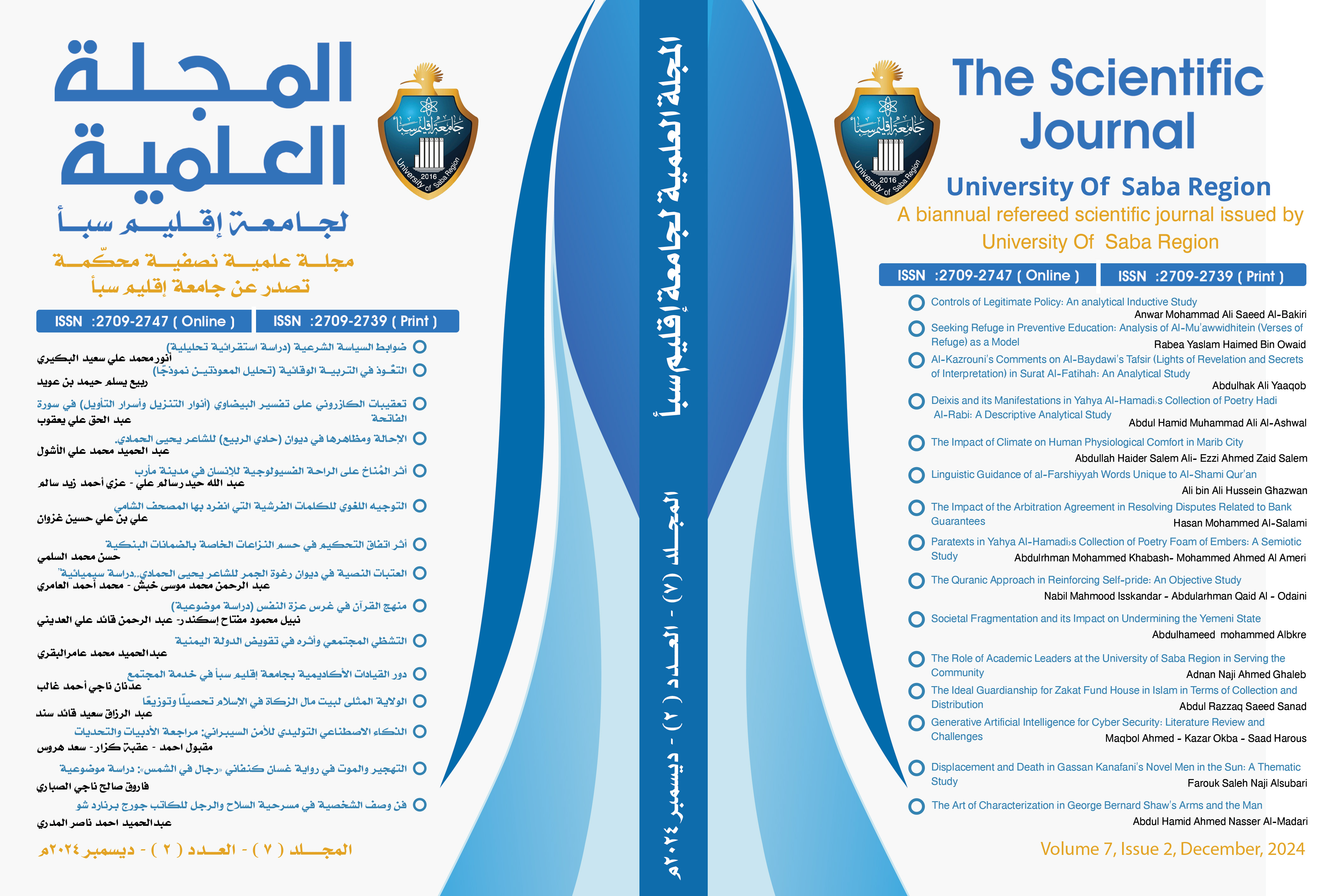The Art of Characterization in George Bernard Shaw’s Arms and the Man
DOI:
https://doi.org/10.54582/TSJ.2.2.107Keywords:
Characterization, idealism, realism, Arms and the Man, George Bernard ShawAbstract
This research is aimed to analyze the art of characterization in George Bernard Shaw’s Arms and the Man, and to evaluate the artistic beauty that the characters add to the play. It is significant in a way that it adds a new dimension to the analysis by investigating the artistic excellences of the characters. The researcher uses a descriptive analytical approach. The research arrives at the following findings: Shaw uses both the techniques of telling and showing in the process of characterization with greater emphasis on the latter. The characters contribute to the charm of the play, and they form its essence. Like human beings in the real life, characters in the play are subject to changes in their beliefs and ideas. For example, Raina, with the help of Bluntschli, abandons her romantic and idealistic views of love and war, ultimately embracing a more realistic perspective. The play is seen as a combination of opposing ideas and beliefs enlivened by characters: realism versus idealism, lower class versus aristocracy, and cowardice versus bravery. But these opposing ideas and beliefs come to terms of reconciliation at the end. The characters such as Raina, Bluntschli, Sergius and Louka, revolt against the dominant social norms. For example, Raina, the rich beautiful twenty-three-year-old Bulgarian girl, accepts the marriage of Bluntschli, the thirty-four-year-old Serbian soldier; and major Sergius, the handsome young Bulgarian officer, agrees to marry Louka, the Petkoff’s attractive young female servant. These marriages between high class people and lower class people promote the establishment of a classless peaceful society.
Downloads
Published
How to Cite
Issue
Section
License
Copyright and Licensing
This journal publishes all scientific materials under the Creative Commons Attribution 4.0 International (CC BY 4.0) , license, which grants you the following permissions:
You are free to:
- Share — copy and redistribute the material in any medium or format for any purpose, even commercially.
- Adapt — remix, transform, and build upon the material for any purpose, even commercially.
- The licensor cannot revoke these freedoms as long as you follow the license terms.
Under the following terms:
- Attribution — You must give appropriate credit , provide a link to the license, and indicate if changes were made . You may do so in any reasonable manner, but not in any way that suggests the licensor endorses you or your use.
- No additional restrictions — You may not apply legal terms or technological measures that legally restrict others from doing anything the license permits.
Notices:
You do not have to comply with the license for elements of the material in the public domain or where your use is permitted by an applicable exception or limitation .
No warranties are given. The license may not give you all of the permissions necessary for your intended use. For example, other rights such as publicity, privacy, or moral rights may limit how you use the material.













